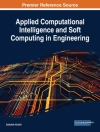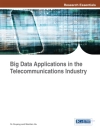Io T for Defense and National Security
Practical case-based guide illustrating the challenges and solutions of adopting Io T in both secure and hostile environments
Io T for Defense and National Security covers topics on Io T security, architecture, robotics, sensing, policy, operations, and more, including the latest results from the premier Io T research initiative of the U.S. Defense Department, the Internet of Battle Things. The text also discusses challenges in converting defense industrial operations to Io T and summarizes policy recommendations for regulating government use of Io T in free societies.
As a modern reference, this book covers multiple technologies in Io T including survivable tactical Io T using content-based routing, mobile ad-hoc networks, and electronically formed beams. Examples of Io T architectures include using Kep Server EX for edge connectivity and AWS Io T Core and Amazon S3 for Io T data. To aid in reader comprehension, the text uses case studies illustrating the challenges and solutions for using robotic devices in defense applications, plus case studies on using Io T for a defense industrial base.
Written by leading researchers and practitioners of Io T technology for defense and national security, Io T for Defense and National Security also includes information on:
* Changes in warfare driven by Io T weapons, logistics, and systems
* Io T resource allocation (monitoring existing resources and reallocating them in response to adversarial actions)
* Principles of AI-enabled processing for Internet of Battlefield Things, including machine learning and inference
* Vulnerabilities in tactical Io T communications, networks, servers and architectures, and strategies for securing them
* Adapting rapidly expanding commercial Io T to power Io T for defense
For application engineers from defense-related companies as well as managers, policy makers, and academics, Io T for Defense and National Security is a one-of-a-kind resource, providing expansive coverage of an important yet sensitive topic that is often shielded from the public due to classified or restricted distributions.
Sobre el autor
Robert Douglass, Ph D, is the Chief Technology Officer at Alta Montes Inc.
Keith Gremban, Ph D, is Co-Director of the Spectrum Policy Initiative at the Silicon Flatirons Center, and Research Professor in the Ann and H.J. Smead Aerospace Engineering Sciences Department at the University of Colorado Boulder.
Ananthram Swami, Ph D, is the Army ST for Network Science, and Chief Scientist of the DEVCOM Army Research Laboratory’s CRA on the Internet of Battlefield Things. He is a co-editor of the Wiley book, Wireless Sensor Networks: Signal Processing and Communications Perspectives (2007).
Stephan Gerali, Ph D, is a Senior Fellow at Lockheed Martin, Inc.












